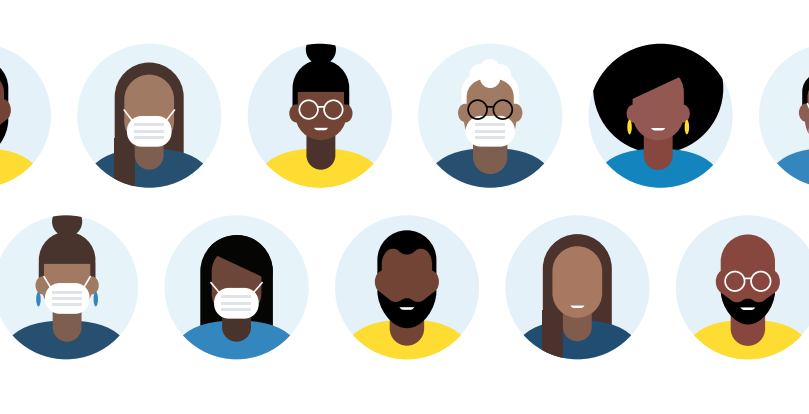The Boston Black COVID19 Coalition and Fenway Health have released a groundbreaking new report that outlines important learnings about the health and wellbeing of Boston’s Black community.
The Black Boston COVID-19 Coalition (BBCC) and Fenway Health began conversations in fall 2020 about the urgent need for health care institutions in Boston to better serve the Black community to address the devastating impacts of two deadly pandemics: COVID-19 and generations of systemic racism that preceded COVID and have made it worse. The two organizations agreed it was essential to engage the Black community as an authentic partner to both understand and address these urgent issues. They also agreed that for Fenway Health to effectively partner with the Black community to address these issues, Fenway Health would need to commit to addressing systemic racism and building a culture that centers racial equity within its own organization, its leadership, and its work.
“Late in 2020, Fenway Health began enrollment for the AstraZeneca COVID-19 Vaccine study,” explained Adrianna Boulin, Fenway Health Director of Community Impact & Engagement, who was the voice of Fenway Health at BBCC meetings. “We wanted to reach those who were most impacted by COVID-19 and also those who were not as engaged in research to ensure research data reflects all people. Black people experience some of the highest rates of COVID-19 and for valid reasons have been less engaged in research. When I presented our research study and invited coalition members to share the information about the study with their constituents, we as Fenway Health were called in by the BBCC, to have a deeper conversation between our leadership to discuss how we were dismantling racism and promoting racial equity – key elements in what we’ve committed to doing as an organization to improve the health and wellbeing of our patients, clients and community.”
BBCC and Fenway Health agreed to work toward achieving the following broad goals:
- Understand and improve the health and wellbeing of Boston’s Black community during the current and evolving pandemic and its impacts as well as longer term.
- Understand how systemic racism has undermined these outcomes, develop a plan to address the systemic racism they find, and then take action to address it.
- Help Fenway Health become an antiracist organization and build a race equity culture in order to effectively serve the Black community.
- Collect, share widely, and continuously improve data and metrics that tell the truth about the health and wellbeing of Boston’s Black community.
- Develop a case study of what we learn through our partnership. Share it with others in Boston and around the country in order to challenge, inspire, and better equip them to improve the health and wellbeing of, and partnership with, Black communities everywhere.
The project conducted research in August 2021 through focus groups and street surveys. Participants who represented many different parts of Boston’s Black community were asked:
- What they value and trust in the health care system and beyond
- What works to support their health and wellbeing
- What doesn’t work: what hinders or undermines their health and wellbeing
- What priorities need to be addressed to overcome these gaps and barriers
- Which organizations BBCC and Fenway Health should work with to address priorities important to the Black community for advancing its health and wellbeing
The report is organized in a section of key findings that begins with an executive summary of key themes, followed by key findings regarding the central questions posed to focus group and survey participants. The report concludes with an appendix that includes three things: powerful stories of assessment participants, the names of organizations who hosted focus groups, and a glossary that includes a few words or terms used in this report that may be unfamiliar to some readers, or are widely used but may mean different things to different people. We’ve provided definitions to let people know how our project understands the words.
“Being present at BBCC meetings taught me a lot and was inspiring,” said Boulin. “It was important to me to be there as a Black person, as public health professional, and most importantly, as a human being wanting good for other human beings. I learned so much from what was being shared about the work being done and was inspired to also share the work that I was doing and how it aligned with improving the health and wellbeing of Black Bostonians.”
The full report, We Thought You’d Never Ask! Learning From Boston’s Black Community What Supports Its Health, Resilience, and Wellbeing, is available for download here.


